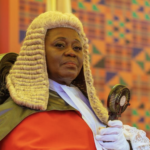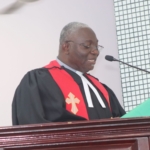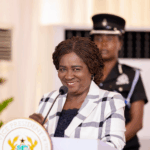
I was on the Judicial Council when Chief Justice Torkornoo reported to the Council that there had been an audit finding against her for the purchase of some airline tickets.
I was startled. CJ Torkornoo was the third chief justice under whose chairmanship I was serving on the Judicial Council.
During the period I was on the Council, I could recall three or four occasions when the Council was asked to deal with conditions of service for the staff of the Judicial Service and that included things like drawing up a travel policy to spell out travel expenses for members of the judiciary, from the Chief Justice and Supreme Court judges all the way to magistrates.
I remember how horrified my good friend the late Mamponghene was, the first time a paper was brought before the Council, spelling out the conditions of service for judges.
The good chief, who was representing the National House of Chiefs on the Council, had been a registrar at KNUST in his earlier life and knew a thing or two about the public service in Ghana, especially about entitlements. He would say over and over again, “We are dealing with the third arm of government here,” and he would say the Chief Justice should be accorded the “requisite protocol”.
We had great difficulty settling on what rates of per diem travelling judges should take because, apparently, Parliament was reluctant to disclose their figures, which we hoped would serve as a guide to us. There were long discussions about security and who should accompany the Chief Justice on her travels and what type of hotel accommodation would be suitable.
I assumed that if a new chief justice asked for tickets to be purchased for a spouse or a friend, he/she would be briefed by the secretariat on the dos and don’ts and I was therefore puzzled that an audit finding could be made in relation to the purchase of airline tickets.
Unless, of course, we had a situation where the Chief Justice, having been briefed that under the conditions of service she was not entitled, chose to ignore the advice.
None of the three chief justices that chaired the Council I served on was likely to do that.
So, if the travel policy rules approved by the Judicial Council had not been breached, how can there be an audit finding, never mind how can it become the reason for a petition and a reason for the Council of State to advise there was reason for the president to start a process for the removal of a chief justice?
I have now read the petition of Daniel Ofori whose success, we are told, forms the basis for the removal of CJ Torkornoo. Of the 21 listed items in the petition, I can identify more than ten as issues that came before the Judicial Council and were exhaustively discussed.
The problem with court registrars, for example, was a long-standing one that had been identified and decisions taken to tackle. The decision to appoint lawyers and judges to serve as registrars in the Appeal and Supreme Courts was made at the Council and the interviews of the people appointed were conducted by the appointments committee of the Judicial Council.
How do these matters now get to be listed as evidence of capricious behaviour or bias on the part of CJ Torkornoo? I don’t recall that there were any disagreements over these decisions, not even from some of the members of the Council who did not bother to mask their personal hostility towards CJ Torkornoo.
I have served in the Office of the President and I have a fair idea of how things work there. Even when I am not in government or near the officialdom of government, I have followed the presidency for a long time, so I am not talking about the presidency under an NPP government only.
I have not been near the Office of the Speaker of Parliament, but because I take an interest in politics and governance, I have a fair idea how that office works.
I would be very surprised that there would ever be an audit finding against a president of the republic or a Speaker of Parliament for any reason, never mind for having asked for a ticket to be purchased for a spouse to accompany him on a trip.
I would have thought that those who care about the separation of powers and who are keen for the judiciary to be accorded the same dignity as the two other arms of government would be keen to have problems within the judiciary resolved within the judiciary.
I would have thought that members of this Third Arm of Government would want administrative issues within the judiciary to be resolved within their own realm.
I have heard senior members of the judiciary wax lyrical about how important it is that, to preserve the independence of the judiciary, their budget should not be touched by Parliament. Indeed, if they could find a way for their budget to bypass the president, they believe that would be ideal and show the independence of the judiciary.
The same people think it is perfectly okay for the transfer of staff in the Judicial Service by the Chief Justice to become subjects of petitions.
I hear that there are quite a number of members of the judiciary who say they have no sympathy for CJ Torkornoo, because she is said to be “too hard”.
Let all such people keep in mind that today it is Gertrude Araba Esaaba Sackey Torkornoo that is being tossed out, but, in truth, the entire judiciary of Ghana, the Third Arm of Government, has been fatally undermined.
Something tells me we shall all live to regret this short term, high-handed enterprise.
For very good reasons that I agree with, by convention, the membership of the Judicial Council is not publicised. If I am breaking any laws by writing about things that I got to know as a result of having served on the Judicial Council, I plead guilty. We are in extraordinary times. It isn’t every day that a chief justice is removed.



